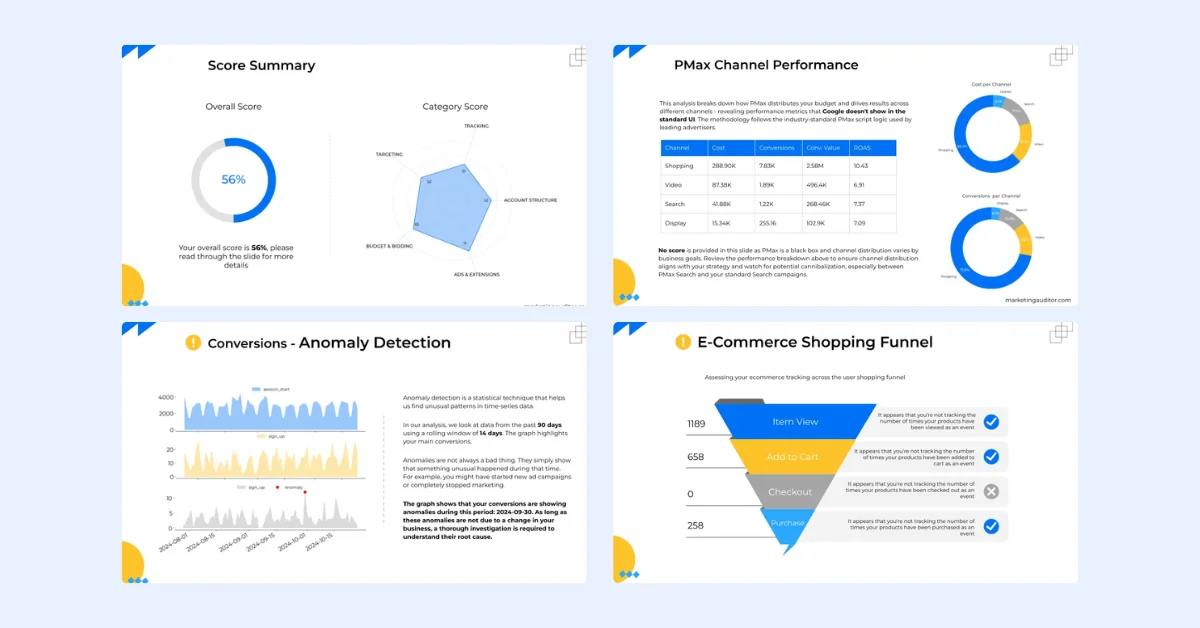Cyrus conducted a 50-site case study to analyze the impact of recent Google updates on SEO practices, particularly whether these updates target overly optimized informational sites. Using Ahrefs metrics and thousands of data points, the study aimed to identify relationships between SEO features and traffic changes.
Google emphasizes that content should benefit users rather than aim for search engine rankings. This study explores how Google might identify "search engine-first" content.
Key Findings
Anchor Text Variety
- Internal Anchors/Page: Correlation: -0.337 | Evidence: Strong
- External Anchors/Page: Correlation: -0.352 | Evidence: Strong
- Sites with more anchor text variations per page tended to lose traffic. This suggests that excessive internal linking with varied anchor text, a common SEO practice, may now be detrimental.

- Sites with more anchor text variations per page tended to lose traffic. This suggests that excessive internal linking with varied anchor text, a common SEO practice, may now be detrimental.
Page Updated Frequency
- Days Since Last On-page Date: Correlation: 0.455 | Evidence: Strong
- Winning sites had an average page age of 774 days, while losing sites averaged 273 days. Frequent minor updates to publishing dates without substantial content changes may harm SEO performance.

- Winning sites had an average page age of 774 days, while losing sites averaged 273 days. Frequent minor updates to publishing dates without substantial content changes may harm SEO performance.
Highly Clickable Title Tags
- Numbers in Titles: Correlation: -0.297 | Evidence: Moderate
- Adjectives in Titles: Correlation: -0.420 | Evidence: Strong
- Sites using catchy, clickbait-style titles performed worse. Google seems to favor straightforward, descriptive titles over those designed to attract clicks.

- Sites using catchy, clickbait-style titles performed worse. Google seems to favor straightforward, descriptive titles over those designed to attract clicks.
Heavy Schema Usage
- Schema Subjects: Correlation: -0.314 | Evidence: Moderate
- Unique Itemtypes: Correlation: -0.381 | Evidence: Strong
- Losing sites used more structured data than winning sites. Overuse of structured data markup might be counterproductive.

- Losing sites used more structured data than winning sites. Overuse of structured data markup might be counterproductive.
SEO Features Without Significant Correlation
Several features showed no significant correlation with traffic changes:
- Reliance on Google Traffic: Correlation: -0.143 | Evidence: Insufficient
- Author Information: Correlation: -0.041 | Evidence: Insufficient
- Table of Contents: Correlation: 0.042 | Evidence: Insufficient
- Word Count: Correlation: -0.161 | Evidence: Insufficient
- Google Business Profiles: Correlation: -0.156 | Evidence: Insufficient

Recovery from Google Updates
Some sites have shown partial recoveries from Google's March Core Update. Adjustments ranged from significant updates and de-optimizing to minor UX tweaks.
Study Methodology
The study included 50 informational websites, screened for traffic, content topics, and monetization methods. Pearson correlation coefficients and t-tests were used to measure and assess the statistical significance of the relationships between SEO features and traffic changes.
This study indicates that some traditional SEO practices may need re-evaluation in light of recent Google updates. You can read more about the study below.



















